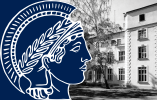The Aim of the Project
The aim of the project is to arrive at a deeper understanding of the genesis and development of quantum physics. While the main focus is on the birth of quantum mechanics in the period around 1925, the project also addresses further developments up to the present time, including the theoretical and experimental practices of quantum physics as well as debates about its foundations. The project is conceived as a close collaboration of a large and varied international group of historians and philosophers of science and working physicists.
Few scientific revolutions have drawn as much attention as the quantum revolution.
We are fortunate that efforts in several places have built extensive archival records
for historians to draw upon; and that some of the extant historical writings are models
of scholarship. Parts of the existing literature, however, fail to meet the particular
challenges of writing the history of quantum physics. Unlike the relativity revolution,
the development of quantum physics was a communal effort whose nature cannot be easily
captured by a biographical approach that focuses on a few central figures. Careful attention
must be paid to the broader community of researchers and to how they could achieve together
what no single researcher could do alone. Another problem is that not much of the existing
literature is reliable when it comes to explaining crucial
mathematical arguments in the primary source material. Finally, a sound understanding of the
advent of quantum physics cannot be achieved without a subtle appreciation of the radical
conceptual changes that it brought. Much of the conceptual analysis in historical writing on the quantum revolution
uncritically presumes an unhistorical view of a unified Copenhagen
interpretation. In fact, the
history of the interpretation of quantum mechanics is, itself, a topic in need of more
thorough and dispassionate historical investigation, all the more so because debates about
interpretation played and continue to play an unusually prominent role in the development of quantum physics.
In view of these challenges, our project is conceived as a close collaboration of a large and varied international group of historians and philosophers of science and working physicists. It takes advantage of the scientific expertise of the physicists and at the same time inteds to reflect modern historiographical and philosophical approaches. It is based on the careful analysis of sources (published papers as well as correspondence, research manuscripts, and laboratory notebooks) and, where possible, instruments. Attention is also paid to the institutional and socio-cultural dimensions of the development of quantum physics.
For this project to succeed, we need to create and foster a collaborative climate and an infrastructure for scholarly research into the birth and development of quantum physics. We therefore seek to establish a network of scholars exchanging ideas and viewpoints through frequent and regular meetings (symposia, workshops, summer schools). In particular, we want to facilitate exchanges between physicists, historians, and philosophers interested in the history or the foundations of quantum physics. In addition, we want to make a special effort to draw young scholars into the project through graduate fellowships and postdoc positions. In support of these activities, we will develop and maintain an easily accessible electronic resource base of both primary source material, published books and articles as well as archival material, and results of ongoing research by members of the network. We will likewise create an electronic educational resource for the dissemination of the history of quantum physics, creating and collecting materials accessible to a wide range of audiences, from the general public to graduate students in (history of) physics.





